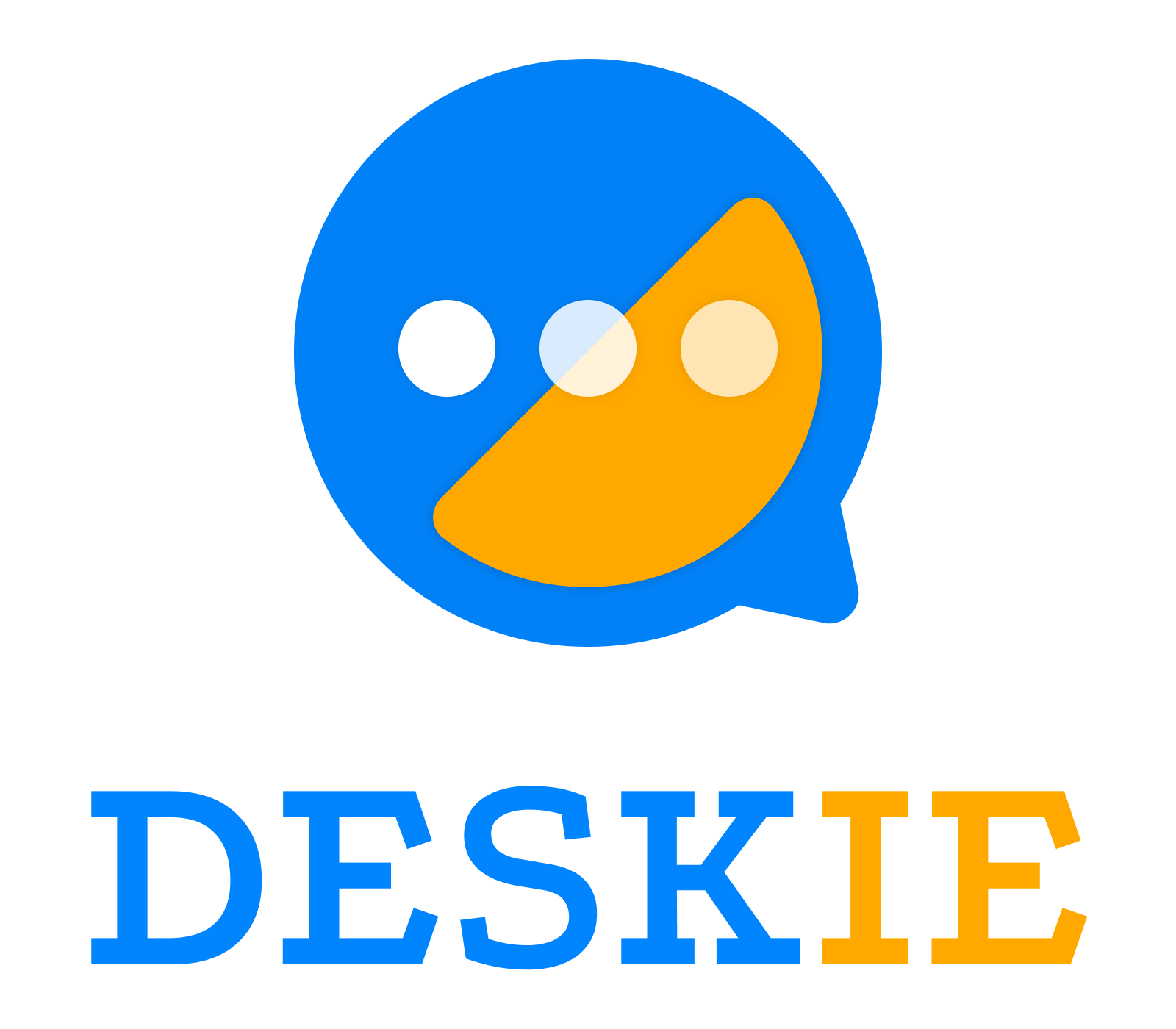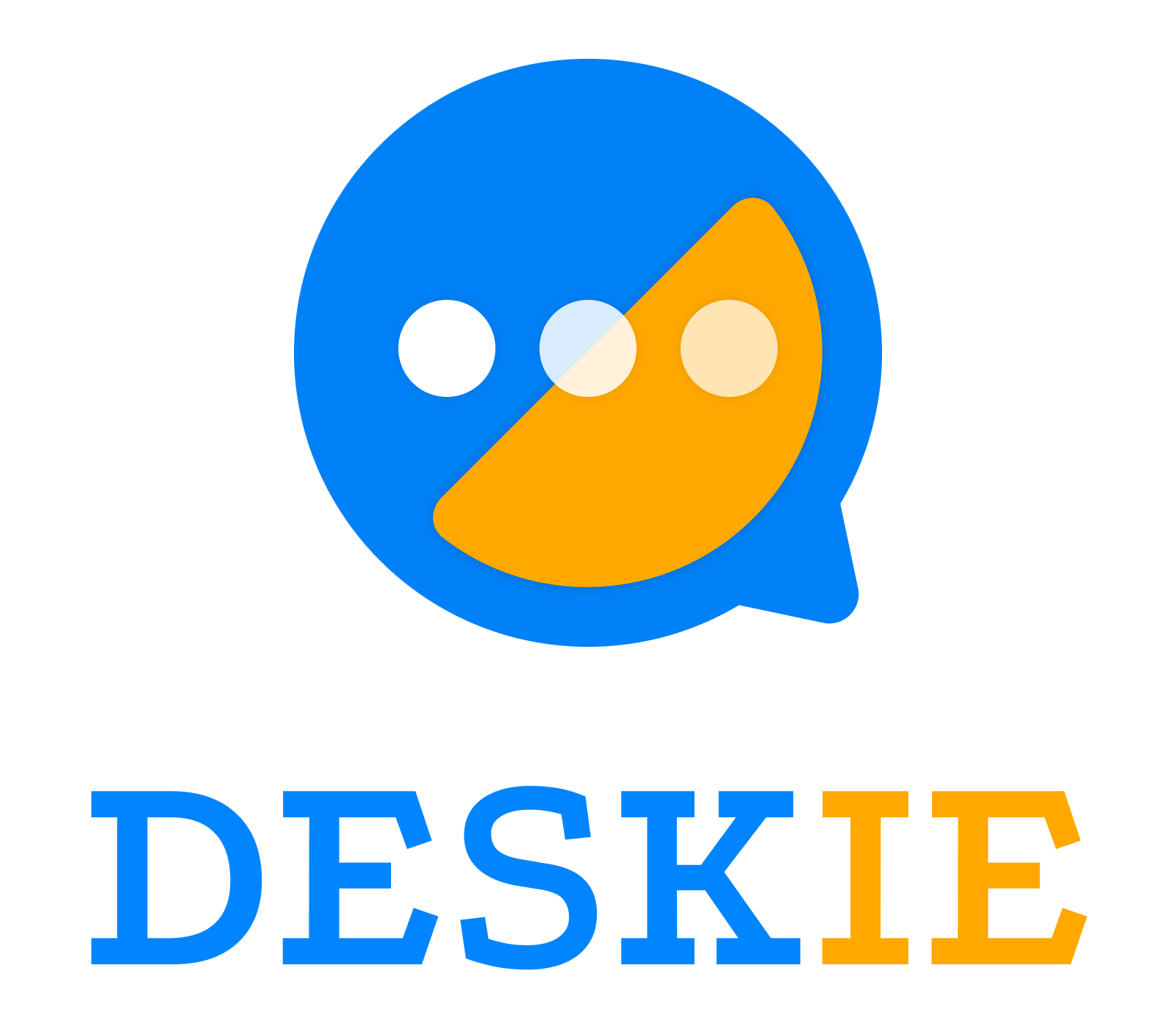We use cookies to improve your browsing experience and show personalized content of our service. By choosing "I Accept", you consent to our use of cookies and other technologies of Deskie.
Size daha uygun ve daha iyi hizmet sunabilmemiz için çerezleri kullanıyoruz. "Kabul Et" düğmesine tıklayarak, çerez kullanımını ve aynı amaç için diğer araçların Deskie tarafından kullanılmalarını onaylamış olursunuz.
Best ways to find support service talents

Managing people is hard, but hiring them is no easier. How to catch the attention of true professionals? What are the criteria for recognizing those who do not fit in? How to weed out the mediocre employees, who mistakenly believe their job is, simply, to get rid of a customer? Today we will talk about how to write an effective job advertisement and conduct an effective interview.
1) Who's that ideal customer service representative?
You should answer this question yourself. Here is a thought: companies spend tons of money on creating their customer profile, but very few think of the same process for their employees.
It is impossible to hire an excellent specialist, relying only on their resume. Also, you need to know whether they are a good fit for your company and can be a great part of the team.
A clear understanding of what exactly are you looking for will make your hunt more effective. Here are three aspects we offer to help in your search.
Personal qualities. Based on your opinion, what are the qualities that are a total must for a great support agent? It can be curiosity, social skills, or an internal need to help people. Make a list and include it in the ad so that applicants can immediately “recognize themselves”.
Corporate culture. The unstated company values and team relationships can be felt everywhere — from the product and marketing to customer support. Try to reflect your main principles in the vacancy's text so the person can understand if you are going to be a good match for each other. Do you think the customer is always right, encourage agents to read as much as possible, hold mandatory table tennis tournaments, or can't live without daily meetings? Write about it. It's not necessarily something the applicant shares your enthusiasm with.
Professional skills. You can create a long and dull list — just like everyone else's. However, it is more efficient to highlight the basic skills needed to solve 80% of the tasks. You can not find a candidate that will tick all the boxes from an endless list. For customer service, it is best to focus on the skills that make it possible to manage the most challenging tasks.
It is impossible to hire an excellent specialist, relying only on their resume. Also, you need to know whether they are a good fit for your company and can be a great part of the team.
A clear understanding of what exactly are you looking for will make your hunt more effective. Here are three aspects we offer to help in your search.
Personal qualities. Based on your opinion, what are the qualities that are a total must for a great support agent? It can be curiosity, social skills, or an internal need to help people. Make a list and include it in the ad so that applicants can immediately “recognize themselves”.
Corporate culture. The unstated company values and team relationships can be felt everywhere — from the product and marketing to customer support. Try to reflect your main principles in the vacancy's text so the person can understand if you are going to be a good match for each other. Do you think the customer is always right, encourage agents to read as much as possible, hold mandatory table tennis tournaments, or can't live without daily meetings? Write about it. It's not necessarily something the applicant shares your enthusiasm with.
Professional skills. You can create a long and dull list — just like everyone else's. However, it is more efficient to highlight the basic skills needed to solve 80% of the tasks. You can not find a candidate that will tick all the boxes from an endless list. For customer service, it is best to focus on the skills that make it possible to manage the most challenging tasks.
2) Writing a Standout Job Description
Standard ads are attracting ordinary employees. But our goal is to attract top talent, so you have some work to do here. Here are some tips.
Display some resourcefulness while choosing words and phrases. Don't stop at just describing required skills. When used correctly, words can help you find that special one who can be a good surprise and will benefit your team. Think about each word: what message does it convey?
Companies that are trying to stand out among others can write something like this: "Looking for Customer Achievement Champion", "Hiring a Happiness Engineer".
Let's be honest, one person is just going to roll their eyes and scroll down further. But there also will be someone, who is going to think: "Wow! Such a cool approach, this ad is about me!". Most probably that person is the talent you were looking for.
Make them scared a little. This kind of strategy also can be beneficial. No, we are not talking about "hands on the table, look me in the eye". Exaggerate a little, highlight difficult job tasks first — that will scare off the lazy ones, who want a cushy job behind others' backs.
For example: "Together with our Account Management you accompany software onboardings with new and existing customers. You are going to be at the front line of customer support, so get prepared to deal with all technical issues that arise. You should be able to guide through the setup process even an old lady, who doesn't know how a computer program differs from a TV one." Well, you need to be pretty self-confident to apply for this kind of position, right?
A few words about the culture. After you got your approximate list of required skills, it's necessary to reflect it correctly in the job description. If it's more about company values, it's better to be straightforward: "You should read every post on our blog. Only in this way, you will learn everything about the company and how we think".
However, if your company is laid back and strives to create a "work hard, play hard" company culture, your post shouldn’t be stiff and formal: "Charm and humor are your brothers".
Job's attractiveness. "Fresh fruits in the office" is amazing. However, the abundance of perks can also have a negative effect. It is unlikely that you need an agent who is only looking for paid meals, free insurance, long vacations, and is ready to "endure" any job only to get all that. That's why, despite the trends, don't get too excited listing all your bonuses and advantages — there will be a time for that while in the interview.
Display some resourcefulness while choosing words and phrases. Don't stop at just describing required skills. When used correctly, words can help you find that special one who can be a good surprise and will benefit your team. Think about each word: what message does it convey?
Companies that are trying to stand out among others can write something like this: "Looking for Customer Achievement Champion", "Hiring a Happiness Engineer".
Let's be honest, one person is just going to roll their eyes and scroll down further. But there also will be someone, who is going to think: "Wow! Such a cool approach, this ad is about me!". Most probably that person is the talent you were looking for.
Make them scared a little. This kind of strategy also can be beneficial. No, we are not talking about "hands on the table, look me in the eye". Exaggerate a little, highlight difficult job tasks first — that will scare off the lazy ones, who want a cushy job behind others' backs.
For example: "Together with our Account Management you accompany software onboardings with new and existing customers. You are going to be at the front line of customer support, so get prepared to deal with all technical issues that arise. You should be able to guide through the setup process even an old lady, who doesn't know how a computer program differs from a TV one." Well, you need to be pretty self-confident to apply for this kind of position, right?
A few words about the culture. After you got your approximate list of required skills, it's necessary to reflect it correctly in the job description. If it's more about company values, it's better to be straightforward: "You should read every post on our blog. Only in this way, you will learn everything about the company and how we think".
However, if your company is laid back and strives to create a "work hard, play hard" company culture, your post shouldn’t be stiff and formal: "Charm and humor are your brothers".
Job's attractiveness. "Fresh fruits in the office" is amazing. However, the abundance of perks can also have a negative effect. It is unlikely that you need an agent who is only looking for paid meals, free insurance, long vacations, and is ready to "endure" any job only to get all that. That's why, despite the trends, don't get too excited listing all your bonuses and advantages — there will be a time for that while in the interview.
3) First screening
Make your applicants work a little. No abuse, just make sure the potential agent is serious.
In response to their resume, you can send an email with additional questions. By doing so you are killing two birds with one stone. Firstly, asking to do a bit of work will weed out the "resume blasters" who apply to any and every job posting without concern for whether or not they (or the job) are the right fit. Secondly, the questions themselves will be of service. Make the questions open, so there is no way to reply with a "yes" or "no". For example: "Imagine a situation when you come back from your lunch break and there are around 100 cases from angry customers. Something might have happened. What are your actions?"
Answers to questions like these will show how the applicant is coping with unusual situations, how well is dealing with challenging tasks, and whether is able to express their thoughts clearly.
Primary skills audit. This method is successfully used by many companies, including Deskie. For example, we offer the applicant to record a short screencast where they explain in detail one of the service's features. The ability to create high-quality screencasts is important for a support agent since it is often easier to convey all the key points to the customer with their help.
Such tasks can be made optional, but not because they are secondary. On the contrary, those who decide not to comply with them should be written off without hesitation :)
In response to their resume, you can send an email with additional questions. By doing so you are killing two birds with one stone. Firstly, asking to do a bit of work will weed out the "resume blasters" who apply to any and every job posting without concern for whether or not they (or the job) are the right fit. Secondly, the questions themselves will be of service. Make the questions open, so there is no way to reply with a "yes" or "no". For example: "Imagine a situation when you come back from your lunch break and there are around 100 cases from angry customers. Something might have happened. What are your actions?"
Answers to questions like these will show how the applicant is coping with unusual situations, how well is dealing with challenging tasks, and whether is able to express their thoughts clearly.
Primary skills audit. This method is successfully used by many companies, including Deskie. For example, we offer the applicant to record a short screencast where they explain in detail one of the service's features. The ability to create high-quality screencasts is important for a support agent since it is often easier to convey all the key points to the customer with their help.
Such tasks can be made optional, but not because they are secondary. On the contrary, those who decide not to comply with them should be written off without hesitation :)
4) Interview
This last step in the epic search for a talented specialist lets you form an opinion of the candidate. Both banal and out-of-ordinary questions can be used here. The main thing is to interpret the answers correctly. Let's look at examples.
"What was your last achievement?"
You might say that it is a standard question, but the answer to such a question can tell a lot about the potential agent and their personal characteristics. For instance, the applicant talks about what efforts had to be made to overcome obstacles and get out of the crisis. What's on the other side? It shows patience and determination, which are very useful qualities for a support agent.
"Tell me how it works"
An effective technique that allows you to reveal a candidate's potential. Will they convey their thoughts clearly and precisely? Will they put themselves in your place? If a person explains a subject unknown to you “from scratch” in such a way that no initial knowledge is required, this is a victory.
You can take it up a notch. Pretend to be distracted and ask again. Will the applicant speak with the same enthusiasm as the first time? Will they be able to hide the resentment caused by your carelessness? These are important qualities, and you can identify them with this simple test.
"Tell me something about yourself"
This is the most common question and almost all applicants have a prepared standard answer for it. Yet, you can start listening to the first part and then cut the story in the middle with any question, starting a casual conversation about an abstract topic. The goal is to see how nice they are to talk to. Customers highly appreciate amicable support service, and often all you have to do is be friendly.
As a conclusion, we would like to cite a few figures. They provide a full insight into the need for a creative and mindful approach when searching for support specialists:
"What was your last achievement?"
You might say that it is a standard question, but the answer to such a question can tell a lot about the potential agent and their personal characteristics. For instance, the applicant talks about what efforts had to be made to overcome obstacles and get out of the crisis. What's on the other side? It shows patience and determination, which are very useful qualities for a support agent.
"Tell me how it works"
An effective technique that allows you to reveal a candidate's potential. Will they convey their thoughts clearly and precisely? Will they put themselves in your place? If a person explains a subject unknown to you “from scratch” in such a way that no initial knowledge is required, this is a victory.
You can take it up a notch. Pretend to be distracted and ask again. Will the applicant speak with the same enthusiasm as the first time? Will they be able to hide the resentment caused by your carelessness? These are important qualities, and you can identify them with this simple test.
"Tell me something about yourself"
This is the most common question and almost all applicants have a prepared standard answer for it. Yet, you can start listening to the first part and then cut the story in the middle with any question, starting a casual conversation about an abstract topic. The goal is to see how nice they are to talk to. Customers highly appreciate amicable support service, and often all you have to do is be friendly.
As a conclusion, we would like to cite a few figures. They provide a full insight into the need for a creative and mindful approach when searching for support specialists:
- 70% of buying decisions are made based on how a customer feels the business treats them.
- 93% of customers are likely to make repeat purchases with companies who offer excellent customer service.
- 95% of customers have taken action (e.g. abandoned a business or complained about it to others) because of a negative customer experience.
- 9 — happy customer, on average, tells nine people about their experience.
Previous
Top 10 skills for agents

